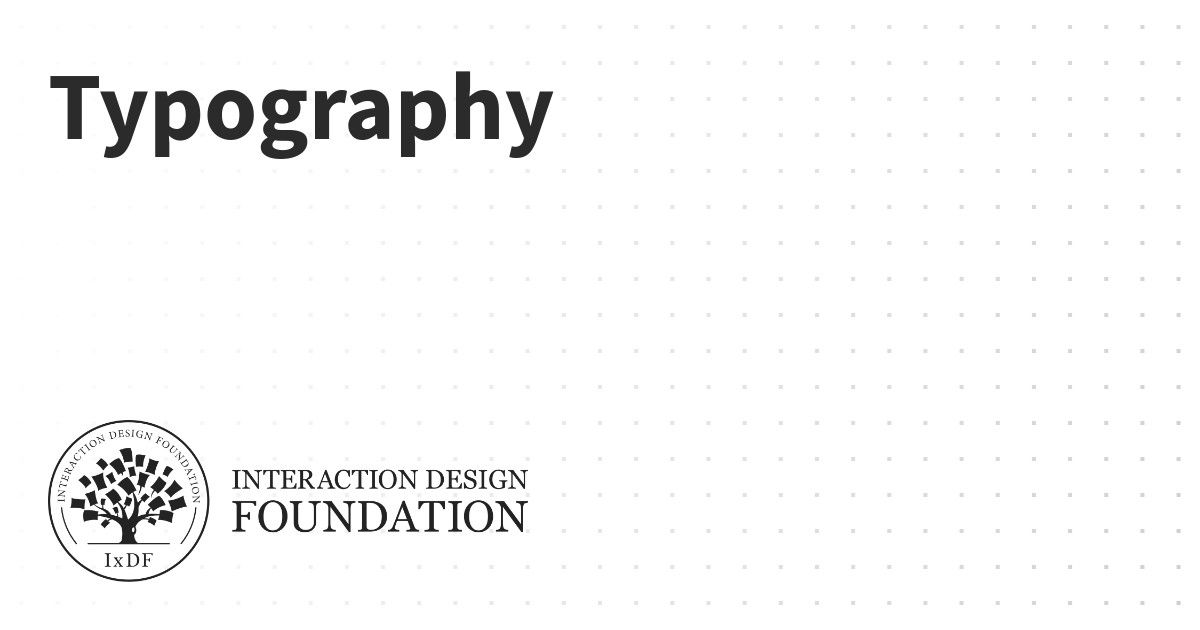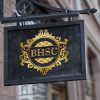
Welcome to the wonderful world of typography, where a simple font choice can make or break a logo faster than you can say Comic Sans. In this article, we will explore the power of typography in logos and the design impact it can have on brands. So buckle up, grab your favorite font, and let’s embark on a typographic journey that will make you rethink the way you see those squiggly little letters.
Creating a Strong First Impression with Typography
Typography is the key to making a lasting impression in the digital world. With the right font, size, and style, you can captivate your audience from the get-go. Here are some tips to help you create a strong first impression with typography:
Make sure your font is legible – there’s nothing worse than trying to decipher a message written in some obscure, hard-to-read font. Stick to fonts that are easy on the eyes, like Arial or Times New Roman.
Experiment with font sizes – don’t be afraid to play around with different sizes to emphasize important parts of your message. Mix it up with larger headlines and smaller body text to keep your readers engaged.
Use bold and italics strategically – bold and italics can add emphasis to your text and draw attention to key points. Just make sure not to overdo it, or your message might end up looking like a chaotic mess.
Remember, typography is an art form – treat it as such and have fun experimenting with different fonts, sizes, and styles. The more creative you get, the more memorable your message will be. So go ahead, unleash your inner font designer and make a strong first impression with typography!
Choosing the Right Typeface for Your Brand
Content:
When it comes to , it’s like picking the perfect outfit for a first date – you want to make a good impression! Here are some tips to help you find the font that will make your brand stand out from the crowd:
- Personality Counts: Just like people, typefaces have personalities too. Are you looking for something fun and quirky? Or maybe something sleek and professional? Make sure the font you choose matches the vibe you want your brand to convey.
- Legibility is Key: Sure, that fancy cursive font might look great on your business cards, but if no one can read it, what’s the point? Make sure your typeface is easy to read, both in print and online.
- Be Unique: Times New Roman may be the safe choice, but why not spice things up with a more unique font that will make your brand memorable? Just make sure it’s still easy to read – nobody wants to strain their eyes trying to figure out what your company name says.

Utilizing Typography to Enhance Brand Recognition
When it comes to enhancing brand recognition, typography is your best friend. By choosing the right fonts and playing around with sizes, styles, and spacing, you can make your brand stand out in a way that no logo ever could.
First things first, choose a font that speaks to your brand’s personality. Are you fun and quirky? Go for a playful script font. Are you sleek and modern? Opt for a clean sans-serif. Make sure to keep it consistent across all of your branding materials to create a cohesive look.
Next, don’t be afraid to experiment with size and spacing. **Bold** headers can draw attention and guide the viewer’s eye to the most important information. On the other hand, smaller text can add depth and detail to your brand story. And don’t forget about line spacing – a little extra breathing room can make all the difference in readability.
Lastly, think about using typography in unexpected ways to make your brand memorable. Maybe use a custom font for your logo, or incorporate text into graphics for a unique twist. The key is to have fun with it and let your brand’s personality shine through every word.
Exploring the Psychological Impact of Typography in Logos
Typography in logos is often underestimated when it comes to its psychological impact. However, the font choice can speak volumes about a brand’s personality and values. Let’s dive into the fascinating world of typographic psychology!
Here are some ways typography can influence our perceptions:
- Emotional Response: Different fonts can evoke various emotions. For example, a bold and sans-serif font might convey stability and strength, while a playful script font can make us feel more lighthearted.
- Brand Identity: The right typography can help solidify a brand’s identity. A clean and modern font might attract a younger demographic, while a classic serif font can appeal to a more traditional audience.
- Legibility: The readability of a logo is crucial for brand recognition. Choosing a legible font ensures that your audience can easily read and remember your logo.
Next time you see a logo, take a moment to analyze the typography. You might be surprised by how much it can subconsciously influence your perception of a brand!

The Role of Typography in Communicating Brand Values
Typography is like the unsung hero of branding. It’s the silent but powerful tool that conveys the personality, values, and essence of a brand without saying a single word. Imagine if a brand’s typographic choices were a person at a party – they would be the life of the party, effortlessly charming everyone in the room with their wit and charisma.
When it comes to communicating brand values, typography plays a crucial role in setting the tone and style. Just like choosing the perfect outfit for a first date, selecting the right font can make or break a brand’s image. Whether it’s the elegant curves of a script font or the bold statement of a sans-serif, each typeface sends a message to consumers about what the brand stands for.
By using typography effectively, brands can establish a unique identity and stand out in a sea of competitors. Think of typography as the spice in a recipe – it adds flavor and personality to the brand, making it memorable and distinctive. A clever combination of fonts, sizes, and styles can create a visual language that speaks volumes about what the brand represents.
So, the next time you see a brand logo or advertisement, take a closer look at the typography. It may seem like just a jumble of letters and shapes, but behind the scenes, it’s working hard to communicate the brand’s values in a way that words alone never could.
Case Studies: How Typography Can Make or Break a Logo Design
Typography plays a crucial role in logo design, and can either make or break the entire look of a brand. Let’s take a look at some case studies that highlight the impact of typography on logo design:
- The Good: In the case of the Coca-Cola logo, the cursive font used is instantly recognizable and has become synonymous with the brand. The flowing script gives off a sense of friendliness and warmth, making it appealing to consumers worldwide. The typography used in this logo truly makes it stand out from the competition.
- The Bad: Now, let’s shift our focus to the infamous Comic Sans font. When used in the logo of a professional business, this font can make the entire brand look unprofessional and untrustworthy. It’s important to choose a font that reflects the values and personality of the brand, rather than detracting from it.
- The Ugly: Lastly, we have the case of the London 2012 Olympics logo. The font used in this design received harsh criticism for being difficult to read and lacking in aesthetic appeal. The typography used in this logo failed to effectively convey the spirit of the event, leaving a lasting negative impression on viewers.
As we can see from these case studies, the typography used in logo design can have a significant impact on how a brand is perceived. It’s crucial to carefully select fonts that complement the overall design and message of the logo, in order to create a successful and memorable brand identity.
Tips for Incorporating Typography Effectively in Logo Design
When it comes to logo design, typography can make or break your design. Here are some tips to help you incorporate typography effectively:
Choose the right font: The font you choose can convey a lot about your brand’s personality. Make sure to select a font that aligns with your brand identity and is easily readable.
Experiment with different font pairings: Mixing and matching fonts can add visual interest to your logo. Try pairing a bold, sans-serif font with a delicate script font for a unique look.
Play with size and spacing: Don’t be afraid to experiment with different font sizes and spacing to create visual hierarchy in your logo. You can emphasize key words or phrases by making them larger or adding more white space around them.
Keep it simple: Remember, less is more when it comes to typography in logo design. Avoid using too many fonts or overwhelming your design with too much text. Keep it simple and let your typography speak for itself.
FAQs
Can the font choice really make a difference in a logo design?
Absolutely! The font choice can completely change the look and feel of a logo. It can convey different emotions, vibes, and messages, so choose wisely!
How important is readability when it comes to logo typography?
Readability is key when it comes to logo typography. You want people to be able to easily read and recognize your logo, so make sure it’s clear and legible.
What are some common typography mistakes to avoid in logo design?
Some common typography mistakes to avoid in logo design include using too many different fonts, choosing a font that doesn’t match your brand’s identity, and not considering scalability.
How can typography enhance the overall design impact of a logo?
Typography can enhance the overall design impact of a logo by adding personality, setting the tone, and creating a cohesive look that resonates with your target audience.
Can you mix different fonts in a logo design, or is it better to stick to one font?
Mixing different fonts can add visual interest and dynamic to a logo design, but be careful not to go overboard. Stick to a maximum of two font choices to keep things cohesive and harmonious.
What are some popular font choices for logo design in 2021?
Some popular font choices for logo design in 2021 include clean and modern sans-serif fonts, classic serif fonts for a timeless look, and unique display fonts for a quirky, individualistic touch.
The Power of Typography in Logos: Design Impact
And there you have it, folks! Typography isn’t just about picking a fancy font and calling it a day. It has the power to make or break a logo design, so choose wisely! Remember, when in doubt, just add some Comic Sans and call it a day (just kidding, please don’t). Keep playing with different typefaces, sizes, and styles to create a logo that truly speaks to your brand. Typography may be subtle, but it sure does pack a punch! Thanks for reading, and happy designing!












